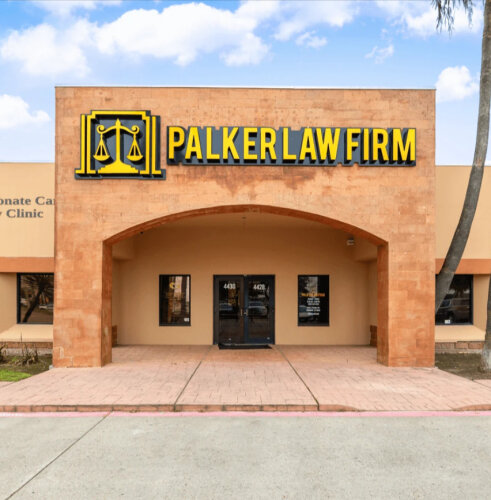Best Medical Malpractice Lawyers in Edinburg
Share your needs with us, get contacted by law firms.
Free. Takes 2 min.
List of the best lawyers in Edinburg, United States
About Medical Malpractice Law in Edinburg, United States
Medical malpractice refers to harm caused by a health care provider who fails to meet the accepted standard of care for the diagnosis, treatment, or management of a patient. In Edinburg - the county seat of Hidalgo County in the state of Texas - medical malpractice claims follow Texas law and are handled in local courts, usually Hidalgo County district courts or federal court when federal questions or parties are involved. Common areas of malpractice include misdiagnosis, surgical errors, medication mistakes, birth injuries, emergency room errors, and failures to obtain informed consent.
This guide explains why people pursue legal help, key local legal rules to be aware of, frequently asked questions, resources in and around Edinburg, and practical next steps if you think you have a claim. This information is for general educational purposes and is not a substitute for legal advice from a qualified Texas attorney.
Why You May Need a Lawyer
Pursuing a medical malpractice claim involves technical medical issues, strict procedural rules, and often lengthy litigation. You may need a lawyer if any of the following apply:
- You or a loved one suffered injury, worsening health, disability, or wrongful death after medical care that seems substandard.
- You believe a diagnosis was missed or delayed and that the delay caused harm.
- You experienced a preventable surgical error, anesthesia mistake, or wrong-site surgery.
- Medication was prescribed or administered incorrectly, causing harm.
- A birth injury occurred that resulted in long-term disability for the child or mother.
- A health care provider failed to obtain informed consent for a high-risk procedure.
- You need help obtaining medical records, evaluating the strength of your case with qualified medical experts, or estimating damages.
A lawyer experienced in Texas medical malpractice can investigate the facts, obtain and review medical records, retain qualified medical experts to evaluate causation and standard of care, prepare the required expert reports, file suit within applicable deadlines, negotiate with insurers and providers, and, if needed, try the case at trial.
Local Laws Overview
Several Texas statutory rules and procedures are especially important for malpractice claims in Edinburg. Key points to understand include the following.
- Governing statute - Texas law on health care liability claims is primarily contained in the Texas Civil Practice and Remedies Code, Chapter 74. This chapter sets many of the procedural and substantive rules that apply to medical malpractice lawsuits.
- Statute of limitations - In most cases, a medical malpractice claim must be filed within two years from the date the medical injury was discovered or should have been discovered with reasonable diligence. There are limited exceptions that can extend this period in narrow circumstances.
- Statute of repose - Texas also has a 10-year statute of repose that generally bars claims brought more than ten years after the date of the alleged negligent act or omission, even if the injury was discovered later. There are limited exceptions.
- Expert report requirement - Chapter 74 requires an injured party to serve an expert report describing the applicable standard of care, how the provider breached that standard, and how the breach caused the injury. The report must be served within 120 days after filing suit in most cases. Failure to provide an adequate expert report can result in dismissal.
- Damage limitations and rules - Texas law contains specific rules and limits that affect recovery. Some types of damages may be limited in amount or subject to particular rules for calculation. Liability of governmental entities and certain health care providers may involve separate notice requirements or caps. Because statutes and case law evolve, a local attorney can explain how these rules apply to a particular case.
- Pre-suit and notice requirements - For claims against governmental health care providers or some public entities, special notice procedures and shorter deadlines may apply. Claims against hospitals, physicians, nurses, and clinics may also involve provider-specific rules for pre-suit investigation and notice.
- Venue and filing - Most malpractice suits against local providers are filed in Hidalgo County district courts. If the claim involves a federal question, diversity jurisdiction, or a federal health care program, a federal district court filing may sometimes be appropriate.
Frequently Asked Questions
What counts as medical malpractice in Edinburg?
Medical malpractice occurs when a health care provider fails to follow the accepted standard of care in the community or among similarly trained providers, and that failure causes injury. Examples include surgical errors, failure to diagnose or delayed diagnosis, medication mistakes, anesthesia errors, and inadequate post-operative care.
How long do I have to file a medical malpractice lawsuit in Texas?
Generally you must file within two years from the date you discovered, or reasonably should have discovered, the injury. There is also a 10-year statute of repose that can bar claims more than ten years after the alleged negligent act. Certain exceptions can apply, so consult a Texas attorney promptly.
Do I need a medical expert to prove my case?
Yes. Under Texas law, most medical malpractice claims require an expert report from a qualified medical professional that explains the standard of care, how it was breached, and how that breach caused the harm. An experienced malpractice lawyer will help identify and retain an appropriate expert.
How does the expert report deadline work?
Once a lawsuit is filed, Chapter 74 generally requires that you serve an expert report within 120 days. The court may grant extensions in some cases, but failure to timely provide an adequate report can result in dismissal of the case. Your lawyer can help prepare and manage this requirement.
Can I recover damages for pain and suffering or lost wages?
Potential recoverable damages may include economic losses such as past and future medical expenses and lost income, and non-economic damages such as pain and suffering. Texas law places limits and rules on certain damages and how they are calculated. A lawyer can explain which damages may apply to your case.
What if the health care provider denies wrongdoing?
Health care providers commonly deny liability. A lawyer will gather evidence, obtain medical records, consult experts, and build a claim showing that the provider departed from the standard of care and that this departure caused your injury. Many cases settle after negotiations, but some proceed to trial.
How much does a medical malpractice lawyer cost?
Many medical malpractice attorneys work on a contingency-fee basis - the lawyer is paid a percentage of any recovery, and fees are not charged if there is no recovery. Fee arrangements vary, and you should discuss fees, expenses, and how expert and litigation costs are handled during an initial consultation.
How long does a malpractice case take?
The timeline varies widely depending on case complexity, medical records review, expert evaluations, court schedules, and settlement negotiations. Some cases resolve within months if liability is clear and parties agree. More complex matters can take several years to litigate and try. Your lawyer can give a more specific estimate after evaluating your case.
Can I file a claim against a hospital, a doctor, and a nurse?
Yes. A claim can be brought against any party whose negligent act or omission caused harm, including physicians, nurses, physician assistants, hospitals, clinics, and other health care institutions. Claims against governmental providers may involve additional notice requirements and procedures.
What should I do right away if I suspect medical malpractice?
Preserve evidence and records. Get copies of your medical records, document your timeline and symptoms, identify possible witnesses, keep bills and receipts, and seek a second medical opinion if appropriate. Contact a licensed Texas medical malpractice lawyer as soon as possible to discuss deadlines and the next steps.
Additional Resources
Below are organizations and agencies that can be helpful for information, complaints, and referrals related to medical malpractice in Edinburg and Texas.
- Texas Civil Practice and Remedies Code - Chapter 74 - governs health care liability claims.
- Texas Medical Board - state agency that licenses physicians and handles complaints about physician conduct.
- Texas Board of Nursing - state agency that licenses and disciplines nurses.
- Texas Department of State Health Services - oversees public health matters and maintains health care information.
- State Bar of Texas - offers a lawyer referral service and information on finding licensed attorneys in Texas.
- Hidalgo County District Clerk - office where civil suits in Hidalgo County are filed and public court records are maintained.
- Centers for Medicare and Medicaid Services - for questions about federal health care program issues, facility enforcement, and quality data.
- National Practitioner Data Bank - a repository of information on medical malpractice payments and certain adverse actions against providers - useful for lawyers and investigators.
Next Steps
If you believe you have suffered medical malpractice in Edinburg, consider the following practical steps:
- Act promptly - consult a qualified Texas medical malpractice attorney as soon as possible to protect your rights and meet time limits.
- Gather and preserve records - request and keep copies of all medical records, billing statements, test results, photographs, discharge summaries, and any correspondence with health care providers.
- Document your experience - write a clear timeline of events, including dates, symptoms, conversations with providers, and names of staff or witnesses.
- Seek medical follow-up - make sure you have appropriate medical follow-up care and obtain objective documentation of injuries and treatment.
- Prepare questions for an attorney - ask about the lawyer s experience with Texas malpractice claims, success with similar cases, fee and expense arrangements, likely timeline, and how expert witnesses will be obtained.
- Be cautious about early settlement offers - insurance companies sometimes make quick offers before the full extent of injury is known. Discuss any offers with your attorney before accepting.
- Understand fees and costs - clarify contingency fees, how litigation expenses and expert fees are handled, and whether there are any up-front costs you must pay.
- Use local resources - consider attorneys who practice in Hidalgo County and have experience handling cases in local courts and with local experts.
Remember that this guide is informational only and does not create an attorney-client relationship. A licensed Texas attorney can evaluate your specific situation, explain your legal rights, help you meet deadlines, obtain necessary expert reports, and represent you in negotiations or court if needed.
Lawzana helps you find the best lawyers and law firms in Edinburg through a curated and pre-screened list of qualified legal professionals. Our platform offers rankings and detailed profiles of attorneys and law firms, allowing you to compare based on practice areas, including Medical Malpractice, experience, and client feedback.
Each profile includes a description of the firm's areas of practice, client reviews, team members and partners, year of establishment, spoken languages, office locations, contact information, social media presence, and any published articles or resources. Most firms on our platform speak English and are experienced in both local and international legal matters.
Get a quote from top-rated law firms in Edinburg, United States — quickly, securely, and without unnecessary hassle.
Disclaimer:
The information provided on this page is for general informational purposes only and does not constitute legal advice. While we strive to ensure the accuracy and relevance of the content, legal information may change over time, and interpretations of the law can vary. You should always consult with a qualified legal professional for advice specific to your situation.
We disclaim all liability for actions taken or not taken based on the content of this page. If you believe any information is incorrect or outdated, please contact us, and we will review and update it where appropriate.










